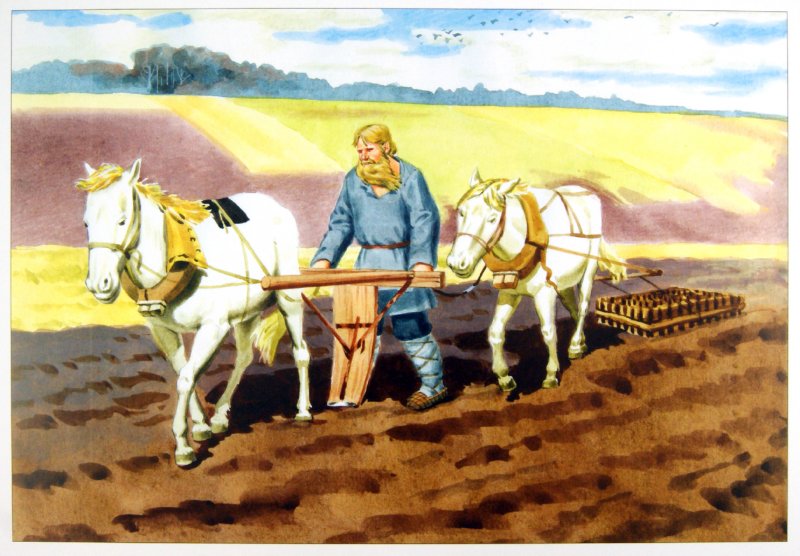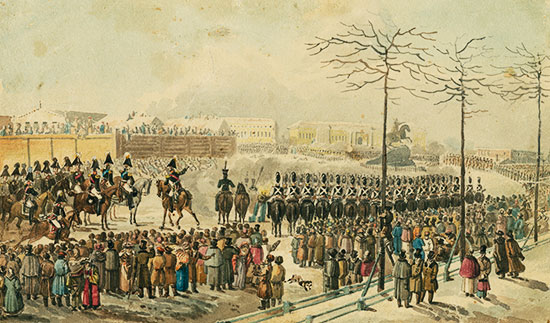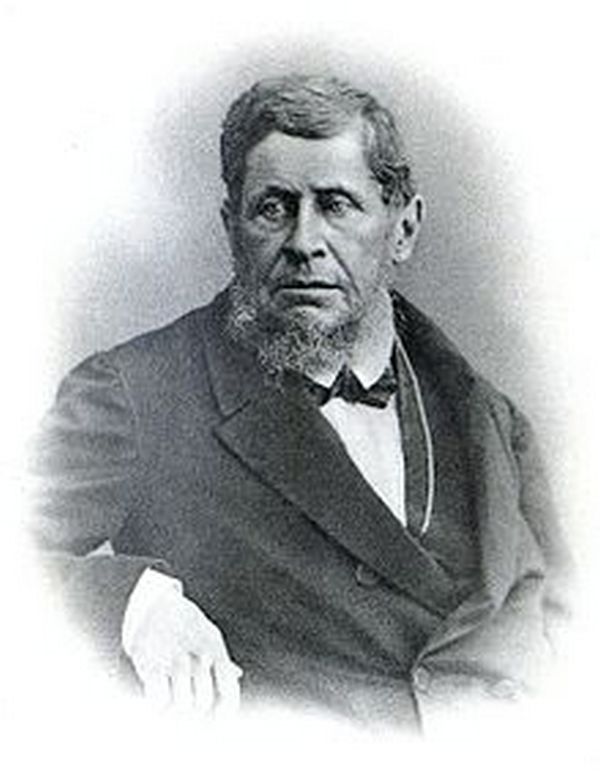One of the most prominent representatives of Russian liberalism of the 19th century was Nikolai Ivanovich Turgenev, who became famous as a member of the secret society of the Decembrists and a progressive economist who actively advocated the establishment of European methods of management in Russia. Confronted with his will to emigrate and living a significant part of his life away from Russia, he set an example for a true patriot and citizen.
early years
Nikolai Ivanovich was born on October 12 (23), 1789 in Simbirsk, in the family of a real Privy Councilor Ivan Petrovich Turgenev. The childhood and youthful years of the future Decembrist passed in the traditions of high society, to which his parents belonged. Having become at the age of seven a pupil of a noble boarding house opened at Moscow University, the director of which was his father, he eventually moved to a student bench, and after graduating, went to Göttingen to improve his knowledge in the field of history, economics and jurisprudence. Even his fascination with Freemasonry and joining one of the Parisian lodges fully corresponded to the traditions that existed then in aristocratic circles.
Towards the ideals of democracy
Future public figure and Decembrist Nikolai Ivanovich Turgenev returned to Moscow in 1812, he soon took the post of secretary with the Prussian reformer Heinrich Stein who was there, who was entrusted on behalf of the Russian and Austrian monarch with issues related to the post-war settlement of Germany. Communicating closely with this outstanding man, he was imbued with the ideas of universal equality and democracy, which then found their embodiment in a number of his scientific works and journal publications.
Progressive views of a young economist
His first major work was a book entitled “The Experience of the Theory of Taxes”, which was published in May 1818. In this and subsequent works of Nikolai Ivanovich Turgenev, the idea of reforming the entire state economy and the need for a radical revision of the peasant question is carried out as a red thread. In particular, the author pointed out that only the transfer of serfs to the position of free farmers renting land plots from their landowner owners is capable of ensuring the maximum increase in the manufactured product and contributing to an increase in the general level of the economy in the country.

He did not remain aloof from the search for further ways of the political development of Russia. For the future Decembrist Nikolai Ivanovich Turgenev, 1812 was a stage that largely determined his subsequent fate. Having returned to Russia after several years in Europe, he felt with unusual acuteness its backwardness in many areas of life, primarily in the structure of the political system. As a true patriot, who did not want to remain only a passive observer of what was happening, Nikolai Ivanovich Turgenev actively joined in the activities of a number of noble public organizations created then, the largest of which was the Union of Welfare. At its meetings heated discussions were held over whether the monarchical or republican option of the state system is preferable for Russia?
A sharp twist of fate
In 1822, the completely legal "Union of Welfare" was dissolved, it gave way to a secret political organization called the "Northern Society", in the bowels of which for three years the idea of an armed uprising, committed three years later on the Senate Square of the capital, matured. Historians do not have a single opinion on the membership of Nikolai Ivanovich Turgenev among the conspirators; he himself categorically denied this. It is known for sure that he did not directly participate in the events of December 14 (26), 1825, but was brought to business only on the basis of the fact that he attended several meetings of the Northern Society several times.

Nevertheless, the attempted coup d'etat, committed by the people in whose circle he was a member, dramatically changed his whole subsequent life. As noted in the biography of Nikolai Ivanovich Turgenev, in the summer of 1926, while in England, he received an order to return to Petersburg to testify about his participation in secret political organizations. Not wanting to put himself at risk, Turgenev compiled and sent to the highest name an explanatory note in which he categorically denied his participation in the activities of the Northern Society, recognizing only membership in the Welfare Union, which was a completely legal organization.
Forced emigration
Since that time, extremely hostile relations have been established between Nikolai Ivanovich Turgenev and Nikolai 1. On the part of the sovereign, they were determined by the belief that he was dealing with a clear intruder, and on the part of the latter, by fears related to personal security and the inability to return to his homeland, where he was waiting for an imminent arrest. Lots of moral suffering caused him news of the fate that befell his comrades, who became direct participants in the armed uprising.

Despite all the written attempts to make excuses, by the decision of the Supreme Criminal Court, Turgenev was recognized as a state criminal, and Russian embassies received orders to take measures to detain him. The government of England, where he was then located, was sent a demand for his immediate extradition, which was followed by a categorical refusal. Without abandoning the intention to return and strictly punish the "criminal", the gendarme administration attempted to secretly seize him with the help of secret agents, but fortunately, this adventure was unsuccessful.
End of political persecution
Remaining free, Turgenev during the entire reign of Nicholas 1 was deprived of the opportunity to return to his homeland. Only with the accession to the throne of sovereign Alexander 2 did the exile receive an amnesty that relieved him of responsibility for the allegedly committed crime. In Russian history, the name of Nikolai Ivanovich Turgenev is usually associated with the Decembrist movement, but, as mentioned above, he himself denied this, and even did this at the end of his life, when such a confession was not dangerous.
Life summary
Having lived for many years in forced emigration, Turgenev did not stop publishing articles on the political and economic reorganization of Russia. While in Geneva in 1833, he married a Swiss aristocrat Clara de Viaris, who gave birth to a daughter who received the name Fani, and two sons: Albert, a talented painter and Peter, a famous sculptor. Nikolai Ivanovich Turgenev completed his life journey on October 29 (November 10), 1871, in the Paris suburb of Bougival, in the villa of Verbois that belonged to him.